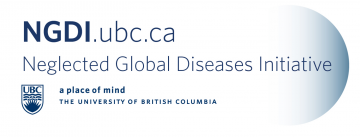Ethical Implications in Ebola Research and Development: Does This Change Everything for Neglected Diseases?
 The West African Ebola Outbreak of 2014 has presented a daunting challenge to the three countries affected, the World Health Organization (WHO), and the global health community at large. While the number of Ebola Virus Disease (EVD) cases has ebbed considerably in the 2015, full elimination of the disease will take time, resources and effort. A critical part of these efforts will be the continued rapid development and testing of potential therapeutics, vaccines, convalescent blood therapies and rapid diagnostic tests.
The West African Ebola Outbreak of 2014 has presented a daunting challenge to the three countries affected, the World Health Organization (WHO), and the global health community at large. While the number of Ebola Virus Disease (EVD) cases has ebbed considerably in the 2015, full elimination of the disease will take time, resources and effort. A critical part of these efforts will be the continued rapid development and testing of potential therapeutics, vaccines, convalescent blood therapies and rapid diagnostic tests.
A WHO report on year one of the epidemic, released electronically on January 15, 2015, stated that “accelerated work on new medical products for [EVD] shows how scientists and the pharmaceutical industry are compressing into a matter of months work that normally takes 2 to 4 years.” The WHO held at least 17 high-level meetings to evaluate the ethics, principles, coordination, clinical trial protocols, and regulatory mechanisms needed to rapidly provide “the African people and their health authorities the best product that the world’s scientists, working collectively, can offer.”
 The “Ethical Implications in Ebola Research and Development” Peter Wall International Roundtable will investigate the repercussions of the West African Ebola Outbreak for research and development ethics, international law, and regulatory changes that have occurred during this acute EVD crisis. We will determine whether or not there has been precedent for responding with equal effort and urgency to more chronic crises that have equally high mortality rates such as several of the neglected global diseases: for example, Visceral Leishmaniasis or Tuberculosis.
The “Ethical Implications in Ebola Research and Development” Peter Wall International Roundtable will investigate the repercussions of the West African Ebola Outbreak for research and development ethics, international law, and regulatory changes that have occurred during this acute EVD crisis. We will determine whether or not there has been precedent for responding with equal effort and urgency to more chronic crises that have equally high mortality rates such as several of the neglected global diseases: for example, Visceral Leishmaniasis or Tuberculosis.
This proposal is significant and timely for two reasons: 1) unprecedented crises such as Ebola and previously HIV/AIDS have the power to change or at least sufficiently challenge the status quo introducing beneficial change to intransigent systems and, 2) we have a moral imperative to investigate these sudden changes in regulatory systems and to advocate for the extension of protocols that save time and money in research and development to neglected diseases and other conditions of the poor.
The Neglected Global Diseases Initiative (NGDI) at UBC is well positioned to organize and host such a meeting at the Peter Wall Institute. The NGDI mandate is to develop interventions for NGD’s and ensure their delivery to those in need. This Peter Wall International Roundtable will advance knowledge and provide valuable instruments in the advocacy of neglected disease research and development worldwide. Specifically, the development of a framework outlining changes to regulatory and legal mechanisms, if supported, would provide a new tool for advocacy groups and global health organizations in their work.
The roundtable has been funded for $28,975 and will take place in early 2016. For more information contact Jocelyn Conway.